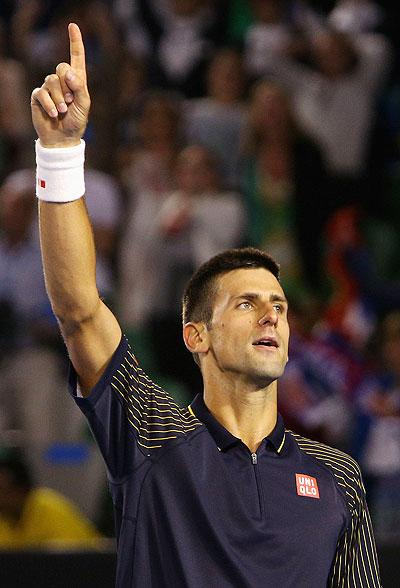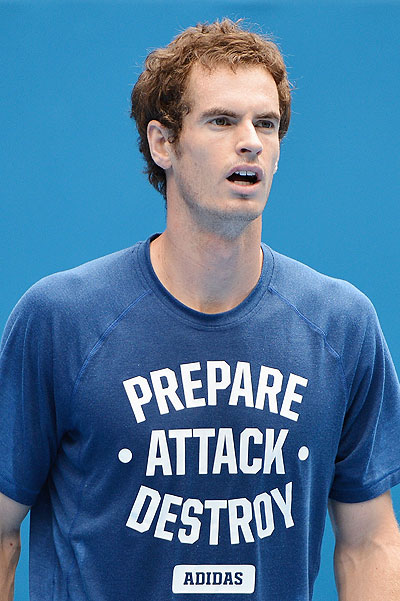Photographs: Robert Prezioso/Getty Images
Novak Djokovic, Andy Murray and other leading tennis players calling for increased blood testing in tennis could get their wish in 2013 with the introduction of athlete biological passports to the sport.
In the aftermath of Lance Armstrong's admission last week that he was on drugs when he won each of his seven Tour de France titles, several top players at the Australian Open have revealed that they have received relatively few blood tests.
World No 1 Djokovic said last week that he had not been blood tested "in six or seven months".
The biological passport is a method of monitoring selected biological parameters over time, rather than trying to detect individual substances, and was considered one of the main reasons for the success in catching cheats in cycling.
"We're looking very, very closely at it and I think there's a reasonably good chance that will be operational probably towards the end of 2013," Dr Stuart Miller, the head of the International Tennis Federation (ITF)'s anti-doping effort, told BBC radio on Monday.
In 2011, the most recent set of figures available, the ITF conducted only 21 blood tests out of competition and 131 in total, a figure well outweighed by urine tests, which numbered 2,019.
At the Paris Masters last October, US Open champion Murray led the calls for more blood tests in tennis, a view backed up in Melbourne by Roger Federer and Djokovic.
Blood tests are more expensive to administer than urine tests and Miller admitted that they were subject to financial constraints.
The Tennis Anti-Doping Programme, which operates under the World Anti Doping Agency (WADA) code is funded by the ITF along with the men's (ATP) and women's (WTA) tours and the Grand Slams.'Roger and Andy are right to say we should put more money into blood tests'
Image: Andy MurrayPhotographs: Vince Caligiuri/Getty Images
On Tuesday, the ITF confirmed that the total investment in the anti-doping programme was $2 million per year.
That included around $400,000 for the administration, paid for solely by the ITF, which covers staff, education, court costs and insurance.
Miller said tennis was doing everything it could to try to catch cheats.
"We are looking with our partners at the ATP, WTA and Grand Slams to identify areas we think we can improve," he said.
"We think we need to increase the proportion of blood testing we do under the programme and we think we could also do with tending to increase the proportion of tests we do out of competition."
The ITF said it is committed to increasing its contribution in 2013 and former top-10 player Guy Forget, now the tournament director of the Paris Masters, said he believed drug taking was still happening in tennis.
"I don't think our sport is clean, I'm sure some guys are cheating," he told the BBC.
"I think it's a minority, probably, but that's why Roger and Andy are right to say we should put more money into blood tests and have more controls because we should fight this any way we can.
"I lost matches probably to guys who beat me with an unfair advantage because they were taking drugs.
"For sure it has happened. I can look in the mirror knowing I have never taken anything. But some guys might have done it.
"First of all some guys have tested positive, even if it's only a few, some have."



Comment
article